
A beloved asked her lover, “Do you love yourself more or me?” He replied, “I am dead to myself and living by thee; I have become non-existent to myself and my own attributes and existent through thee; I have forgotten my own knowledge and have become knowing through thy knowledge; I have lost all thought of my own power and have become powerful through thy power. If I love myself, I must have loved thee, and if I love thee, I must have loved myself.” (Verse): “Whoever possesses the mirror of clairvoyance sees God (even) though he see himself.” (God said to Báyazíd): “Go forth with My attributes to My creatures. Whoso shall see thee shall see Me and whoso shall betake himself unto thee shall betake himself unto Me”; and so on. معشوقی از عاشق پرسید کی خود را دوستتر داری یا مرا گفت من از خود مردهام و به تو زندهام از خود و از صفات خود نیست شدهام و به تو هست شدهام علم خود را فراموش کردهام و از علم تو عالم شدهام قدرت خود را از یاد دادهام و از قدرت تو قادر شدهام اگر خود را دوست دارم ترا دوست داشته باشم و اگر ترا دوست دارم خود را دوست داشته باشم هر که را آینهی یقین باشد گرچه خود بین خدای بین باشد اخرج به صفاتی الی خلقی من رآک رآنی و من قصدک قصدنی و علی هذا
گفت معشوقی به عاشق ز امتحان در صبوحی کای فلان ابن الفلان
At the hour of the morning-drink a beloved said to her lover by way of trial, “O such-and-such son of such-and-such,
مر مرا تو دوستتر داری عجب یا که خود را راست گو یا ذا الکرب
I wonder, do you love me or yourself more? Tell the truth, O man of sorrows.”
گفت من در تو چنان فانی شدم که پرم از تتو ز ساران تا قدم
He replied, “I have become so naughted in thee that I am full of thee from head to foot.
بر من از هستی من جز نام نیست در وجودم جز تو ای خوشکام نیست
Of my existence there is nothing (left) in me but the name: in my being there is naught but thee, O thou whose wishes are gratified.
زان سبب فانی شدم من این چنین همچو سرکه در تو بحر انگبین
By that means I have become thus naughted, like vinegar, in thee (who art) an ocean of honey.”
همچو سنگی کو شود کل لعل ناب پر شود او از صفات آفتاب
As the stone that is entirely turned into pure ruby: it is filled with the qualities of the sun.
وصف آن سنگی نماند اندرو پر شود از وصف خور او پشت و رو
That stony nature does not remain in it: back and front, it is filled with sunniness.
بعد از آن گر دوست دارد خویش را دوستی خور بود آن ای فتا
Afterwards, if it love itself, that (self-love) is love of the sun, O youth;
ور که خود را دوست دارد ای بجان دوستی خویش باشد بیگمان
And if it love the sun with (all) its soul, ’tis undoubtedly love of itself.
خواه خود را دوست دارد لعل ناب خواه تا او دوست دارد آفتاب
Whether the pure ruby loves itself or whether it loves the sun,
اندرین دو دوستی خود فرق نیست هر دو جانب جز ضیای شرق نیست
There is really no difference in these two loves: both sides (aspects) are naught but the radiance of the sunrise.
تا نشد او لعل خود را دشمنست زانک یک من نیست آنجا دو منست
Until it (the stone) has become a ruby, it is an enemy to itself, because it is not a single “I”: two “I’s” are there;
زانک ظلمانیست سنگ و روزکور هست ظلمانی حقیقت ضد نور
For the stone is dark and blind to the day (-light): the dark is essentially opposed to light.
خویشتن را دوست دارد کافرست زانک او مناع شمس اکبرست
(If) it love itself, it is an infidel, because it offers intense resistance to the supreme Sun.
پس نشاید که بگوید سنگ انا او همه تاریکیست و در فنا
Therefore ’tis not fitting that the stone should say “I,” (for) it is wholly darkness and in (the state of) death.
گفت فرعونی انا الحق گشت پست گفت منصوری اناالحق و برست
A Pharaoh said “I am God” and was laid low; a Mansúr (Halláj) said “I am God” and was saved.
آن انا را لعنة الله در عقب وین انا را رحمةالله ای محب
The former “I” is followed by God’s curse and the latter “I” by God’s mercy, O loving man;
زانک او سنگ سیه بد این عقیق آن عدوی نور بود و این عشیق
For that one (Pharaoh) was a black stone, this one (Halláj) a cornelian; that one was an enemy to the Light, and this one passionately enamoured (of it).
این انا هو بود در سر ای فضول ز اتحاد نور نه از رای حلول
This “I,” O presumptuous meddler, was “He” (God) in the inmost consciousness, through oneness with the Light, not through (belief in) the doctrine of incarnation.
جهد کن تا سنگیت کمتر شود تا به لعلی سنگ تو انور شود
Strive that thy stony nature may be diminished, so that thy stone may become resplendent with the qualities of the ruby.
صبر کن اندر جهاد و در عنا دم به دم میبین بقا اندر فنا
Show fortitude in (enduring) self-mortification and affliction; continually behold everlasting life in dying to self.
وصف سنگی هر زمان کم میشود وصف لعلی در تو محکم میشود
(Then) thy stoniness will become less at every moment, the nature of the ruby will be strengthened in thee.
وصف هستی میرود از پیکرت وصف مستی میفزاید در سرت
The qualities of (self-)existence will depart from thy body, the qualities of intoxication (ecstasy) will increase in thy head (thy spiritual centre).
سمع شو یکبارگی تو گوشوار تا ز حلقهی لعل یابی گوشوار
Become entirely hearing, like an ear, in order that thou mayst gain an ear-ring of ruby.
همچو چه کن خاک میکن گر کسی زین تن خاکی که در آبی رسی
If thou art a man, dig earth, like a well-digger, from this earthen body, that thou mayst reach some water;
گر رسد جذبهی خدا آب معین چاه ناکنده بجوشد از زمین
(And) if the pull (inspiration) of God come (to thee), the running water will bubble up from the earth without thy well having been dug.
کار میکن تو بگوش آن مباش اندک اندک خاک چه را میتراش
Be always working, do not pay heed to that (hope of being enabled to dispense with work): keep scraping away the earth of the (bodily) well little by little.
هر که رنجی دید گنجی شد پدید هر که جدی کرد در جدی رسید
To every one who suffers a tribulation there is revealed a treasure: every one who makes an earnest endeavour comes into a fortune.
گفت پیغمبر رکوعست و سجود بر در حق کوفتن حلقهی وجود
The Prophet hath said that acts of genuflexion and prostration (in the ritual prayer) are (equivalent to) knocking the door-ring of (mystical) attainment on the Divine Portal.
حلقهی آن در هر آنکو میزند بهر او دولت سری بیرون کند
When any one continues to knock that door-ring, felicity peeps out for his sake.
Special Offers
by: Reza about (category: Masnavi, Persian Poetry)


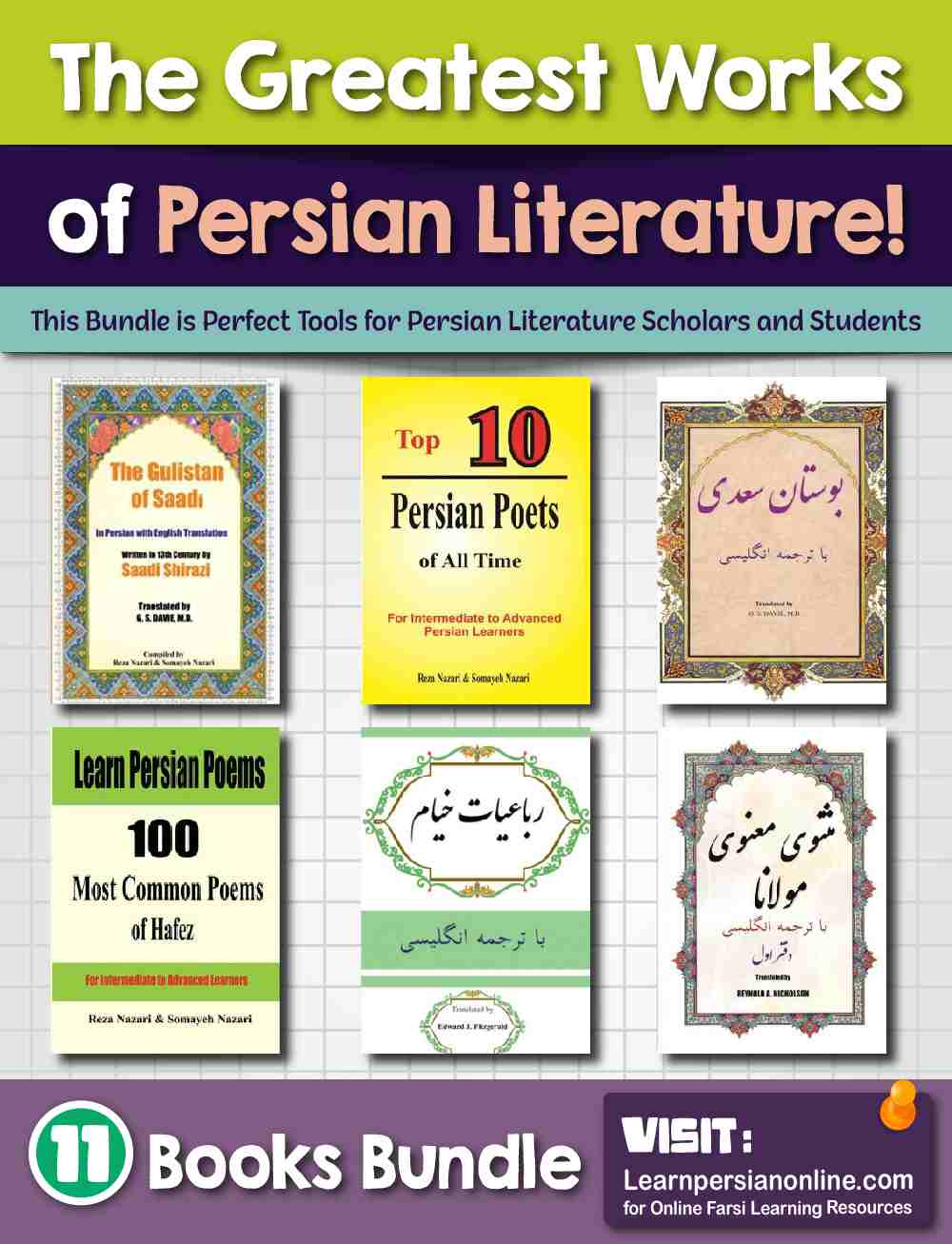
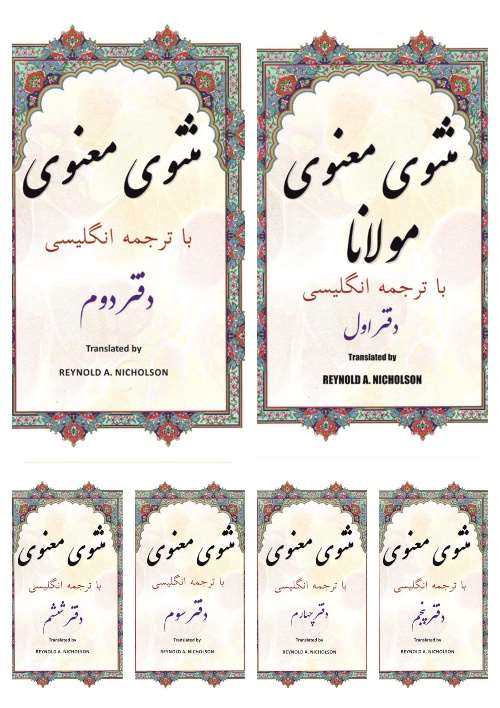
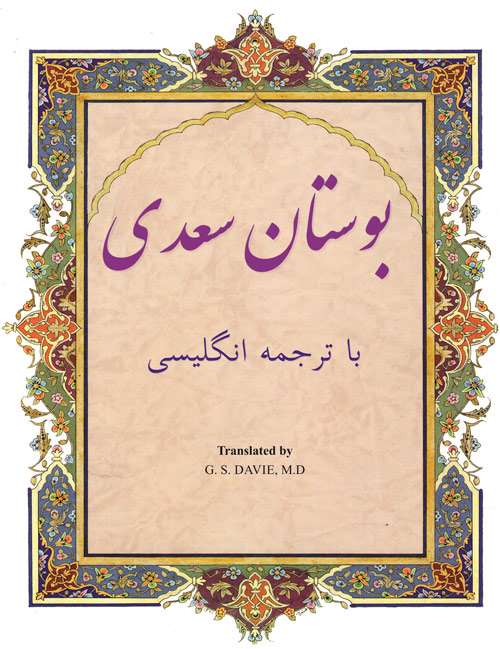
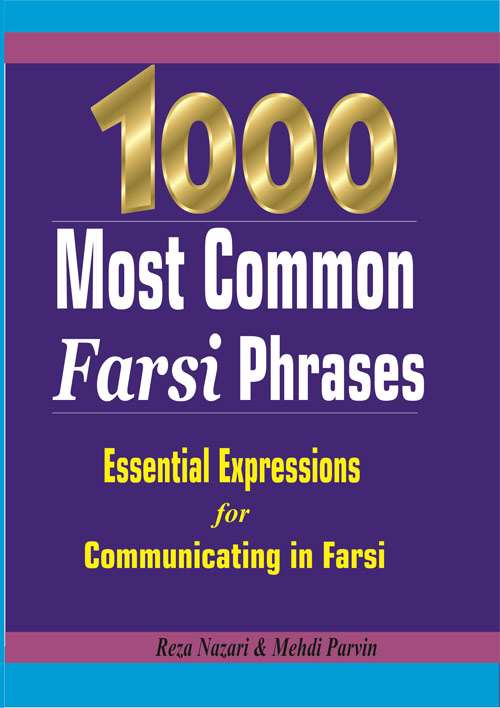
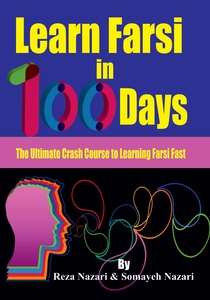






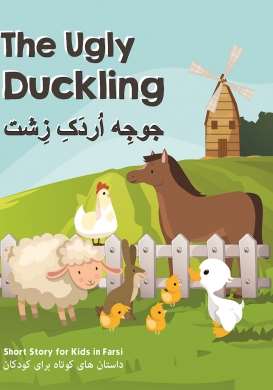
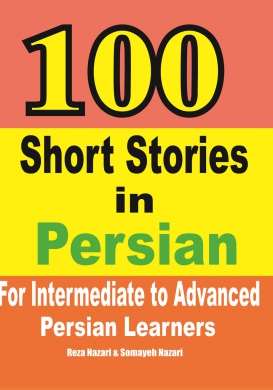
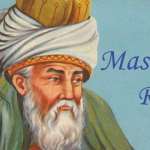
What people say about "A beloved asked her lover"?
No one replied yet.